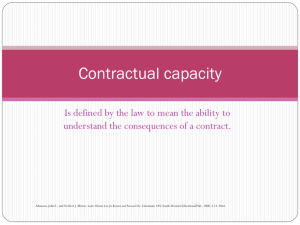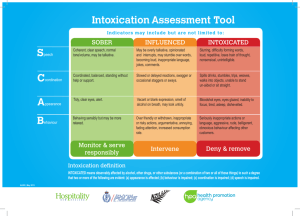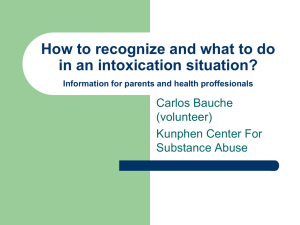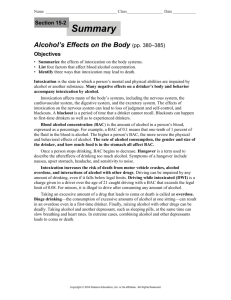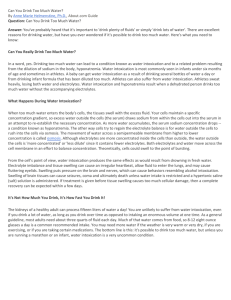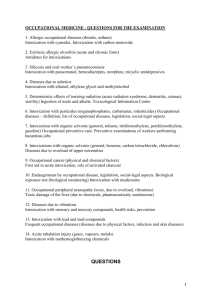Forms of Intoxication, diakrino & diakrise
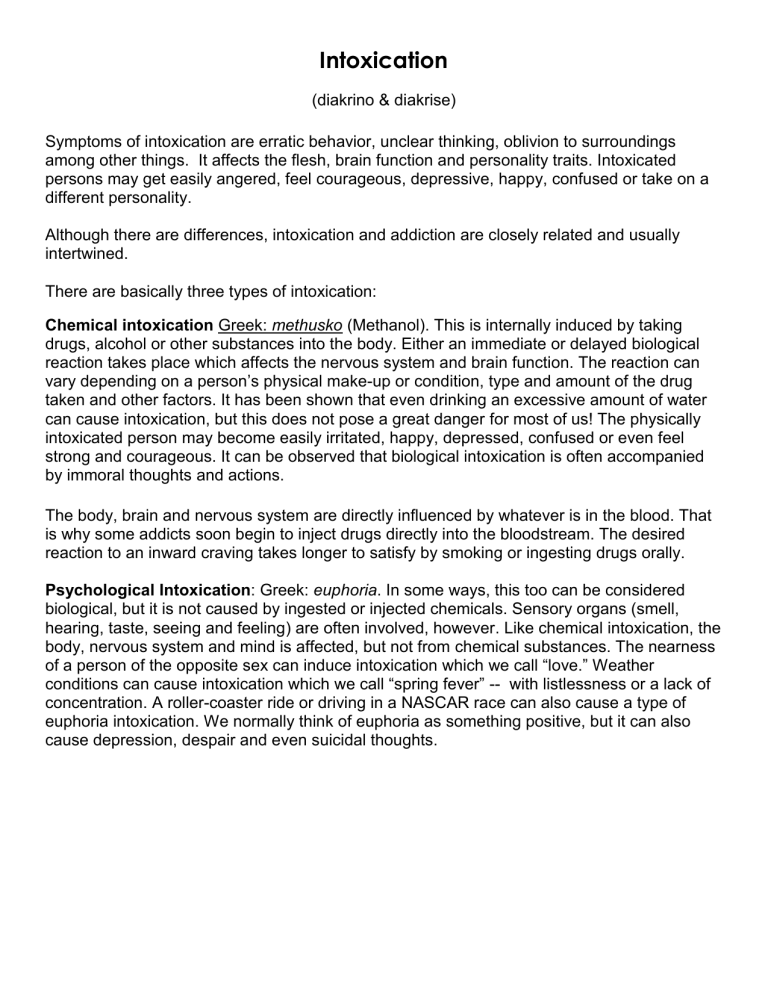
Intoxication
(diakrino & diakrise)
Symptoms of intoxication are erratic behavior, unclear thinking, oblivion to surroundings among other things. It affects the flesh, brain function and personality traits. Intoxicated persons may get easily angered, feel courageous, depressive, happy, confused or take on a different personality.
Although there are differences, intoxication and addiction are closely related and usually intertwined.
There are basically three types of intoxication:
Chemical intoxication Greek: methusko (Methanol). This is internally induced by taking drugs, alcohol or other substances into the body. Either an immediate or delayed biological reaction takes place which affects the nervous system and brain function. The reaction can vary depe nding on a person’s physical make-up or condition, type and amount of the drug taken and other factors. It has been shown that even drinking an excessive amount of water can cause intoxication, but this does not pose a great danger for most of us! The physically intoxicated person may become easily irritated, happy, depressed, confused or even feel strong and courageous. It can be observed that biological intoxication is often accompanied by immoral thoughts and actions.
The body, brain and nervous system are directly influenced by whatever is in the blood. That is why some addicts soon begin to inject drugs directly into the bloodstream. The desired reaction to an inward craving takes longer to satisfy by smoking or ingesting drugs orally.
Psychological Intoxication : Greek: euphoria . In some ways, this too can be considered biological, but it is not caused by ingested or injected chemicals. Sensory organs (smell, hearing, taste, seeing and feeling) are often involved, however. Like chemical intoxication, the body, nervous system and mind is affected, but not from chemical substances. The nearness of a person of the opposite sex can induce intoxication which we call “love.” Weather conditions can cause intoxication which we call “spring fever” -- with listlessness or a lack of concentration. A roller-coaster ride or driving in a NASCAR race can also cause a type of euphoria intoxication. We normally think of euphoria as something positive, but it can also cause depression, despair and even suicidal thoughts.
Spiritual intoxication (for lack of a better word!): Greek: ekstase This kind of intoxication affects those who willingly submit to another person's or spirit's control or empowerment over their minds. Or a person may simply neglect to resist or set up guards against that spirit controlling them.
An intensified hypnotic condition may result, in which the person becomes an observer and/or participant without sensing any personal responsibility -- a trance-like dissociation from reality.
A similar intoxication can be chemically induced by taking certain drugs (LSD, ecstasy etc.), but spiritual intoxication comes by willingly entertaining certain thoughts, meditation, listening to certain music or fantasizing.
Hypnotism is one example in which a person may wield influence or power over another person. I believe that demon possession often occurs when a person willingly submits his mind and body to unknown forces or influences.
Some biblical passages seem to indicate that ecstatic intoxication can be caused by sinister forces (demonic influence). I don't believe that a truly converted Christian can be demon possessed, but they may be influenced or temporarily controlled by evil spirits.
When the Holy Spirit takes control of a person, leading and enabling him to do things that are out of the ordinary, God may be using this same avenue of willingness and submission in a positive way. Consider the Pentecost phenomena in Acts 2. Spiritual intoxication, however, is not a sign or proof of biblical faith or spirituality. Saul and his servants temporarily joined with the prophets in I Samuel 10:10-11 and again in 19:20-24. Although they were "spiritually intoxicated" (under the control of a different spirit) they were not necessarily godly. The story of Balaam or Bileam in Numbers 22-24 is another good example.
Intoxication can be purposely induced, passively experienced, or avoided.
1. Intentional: Many drink alcohol or shoot drugs to get high and others fantasize, listen to certain kinds of music or take Yoga meditation courses to satisfy an inner craving.
2. Unintentional: I know a single missionary who got a bad headache on her way to meetings in a church. She had aspirin in her purse, so stopped in a service area and took it with a
Coke. The result was biological intoxication. She continued to drive, but perhaps should have refrained until her “kick” wore off! Fortunately nothing happened and she was fairly normal when she arrived at the church!
3. Incidental: Unexpected, but often through carelessness or when seeking something else.
Someone has said, "Idle time is the devil's playground." When we are relaxed and simply enjoying life, we are more vulnerable to intoxicating influences because our guard is down
(see my comments on " diakrise and diakrino " at the end of this article).
4. Antithetical: A person can become intoxicated in one area while attempting to flee another type of intoxication. People who try to quit drinking or smoking can become gluttons. A person who tries to escape addiction to pornography through hard work can become a workaholic.
A person can and should exercise caution to avoid harmful intoxication. Even indulging in good food is a form of intoxication which can lead to gluttony. People who seek to escape from problems by drinking alcohol, invite trouble.
As a rule, intoxication can be dangerous for both the intoxicated person and others. There are usually negative results or at least a "hangover" from most types of intoxication. We all know of marriages and families that have been torn apart and promising careers ruined due to intoxication. The modern obsession with sex and pornography has also had a devastating effect on our culture.
Decadent sexual fantasy and immoral acts destroy people physically, mentally and spiritually. Intoxication plays a major role in many religious sects and occult practices. It is prevalent in new age mysticism, and even music can become a danger area. Intoxication is worst when it is considered normal or seen as an accomplishment or to be desired.
Not all intoxication is bad or evil
People who suffer great pain often receive morphine.
Sexual ecstasy or euphoria is a gift of God, intended to give joy in marriage. But marriage relationships must be built on more than lust. Love is blind, but marriage is an eye-opener!
The outpouring of the Holy Spirit at Pentecost was accompanied by a kind of spiritual intoxication. In addition to speaking in other languages, disciples began selling property and sharing everything (Acts 2:44-45).
In the Old Testament we read of prophets who fell into a trance condition, accompanied by strange behavior. In difficult times or situations, God may give Christians a "shot" to help them become "overcomers." Stephen's martyrdom is a good example. Historians say that
Christians who were burned at the stake often sang hymns and their faces shone with joy while they were dying.
Intoxication is never normal!
It may not always be sinful, but it is never a normal condition. When people first fall in love, the tendency is to expect that the feeling they have for each other will remain and be sufficient to build a marriage on. Reality soon returns after a high. Pentecost didn’t last long. The Christians first shared everything, but were soon bickering about preferential treatment. Pentecost has never reoccurred, although many have attempted a re-enactment. The Spirit of God does not glorify man
Those who are filled with the HS are to be rational and “sober” (Acts 2:15-16; I Cor. 15:34; II
Tim. 4:5; I Thess. 5:6-8; I Peter 1:13; 4:7; 5:8).
All gifts of the Holy Spirit named in I Cor. 12 serve to build up the church and not the individual. Speaking in tongues is listed at the end and in the next chapter (13) called a “noisy gong or clanging symbol.” In the 14th chapter, Paul says that this gift builds up the person rather than edifying the church.
Consider all the negative characteristics of the Corinthian Church, which bragged about having the gift of tongues: they lacked love, entertained false teachings, were proud, had infighting, many wanted to rule over others, they were prone to serve their own bellies and
tolerated immorality that was not even found in the heathen world. And Paul also warned them about sins related to the tongue.
Greek: diakrino and diakrise
Solomon spoke nine time s in Ecclesiastes about “vexation of spirit” (KJV). The meaning of the
Hebrew terminology is unfortunately lost in translation. A better rendering would be, “grasping for the wind” or “groping in the wind.” The idea is delving into the unknown with no definite goal in mind other than finding something to satisfy one’s cravings or a yearning. I believe that
Solomon is describing something which is popular in the New Age movement. The mystical and unknown realms hold a special fascination which entice many into probing or experimenting in the unknown realms of the spirit world. They do not intend to be negatively influenced, but this is often the result.
In the New Testament we find two interesting Greek words taken from juristic language. One is diakrino and the other diakrise . Diakrise refers to a decision or judgment based on clear evidence and diakrino shows a decision or judgment based on circumstantial evidence, a hunch or inner gut feeling. For this reason, it is often translated “to doubt”. James wrote that we should pray in faith ( pistis ) nothing doubting ( diakrino ). The idea is similar to the words of
Solomon when he speaks of “groping in the wind.” James is saying that we are to believe on that which is clearly taught in the scriptures and is definitely of God. We are not to experiment or speculate in the unknown realm or go by feelings. I believe that the Bible teaches us to be of a sound mind, body and spirit. We should not place ourselves in a position that makes us vulnerable or do anything that could influence us negatively, but rather place ourselves in subjection to God and the clear teachings of his Word.
Ralph V. Harvey
